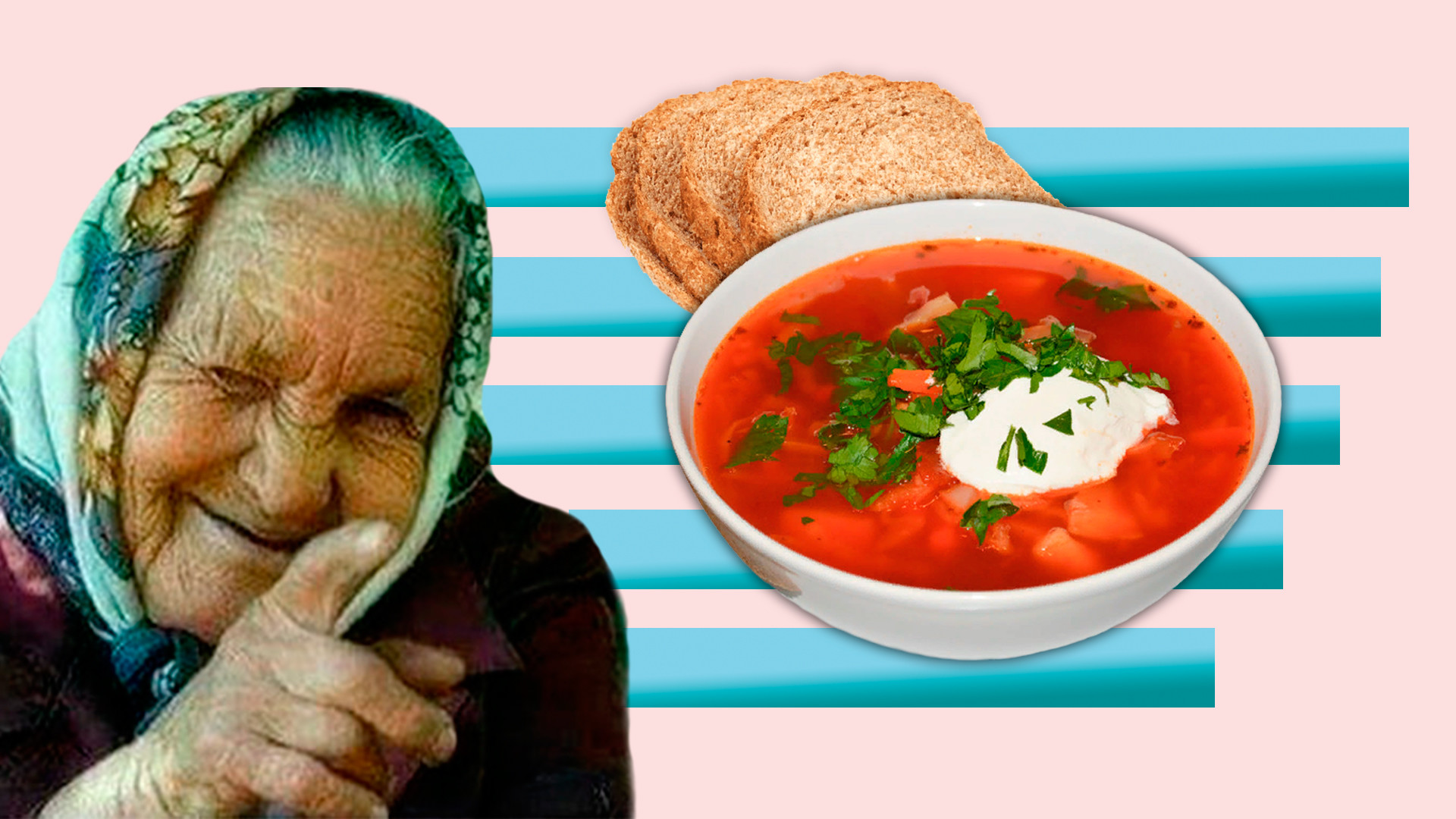
Homemade pies, hearty soups and a tea party with soulful talks instead of staring into a smartphone. What would a “healthy” dinner at a Russian grandma be like?

Should you eat because you are hungry or because it is time? For a Russian babushka, this is not a matter of dispute at all. Breakfast, lunch and dinner are the three pillars of “proper” nutrition. You should always have a good breakfast so that you have enough energy to work and study. Generally speaking, in post-Soviet countries, school lessons start at 8.30 am and the working day at 9 am. Therefore breakfast is served around 7-7.30 am. Traditionally, Russians eat kasha (porridge), fried eggs, sandwiches with butter and “doctor’s sausage” or syrniki, cottage cheese pancakes. (read more about Russian breakfasts here).
Lunch should consist of two or three courses: soup, main dish and dessert. This happens around 1-2 pm in the workplace (many businesses and schools in Russia have canteens). Dinner at home, around 8 pm: a main course or soup and dessert.
Also, around 4-5 pm a poldnik (a “half day”) can be served, which is an “after-lunch” snack: this is usually a sweet cottage cheese casserole or bun with tea or milk cocoa. Many Russians have the most pleasant memories of kindergarten associated with poldnik (and here’s why)!
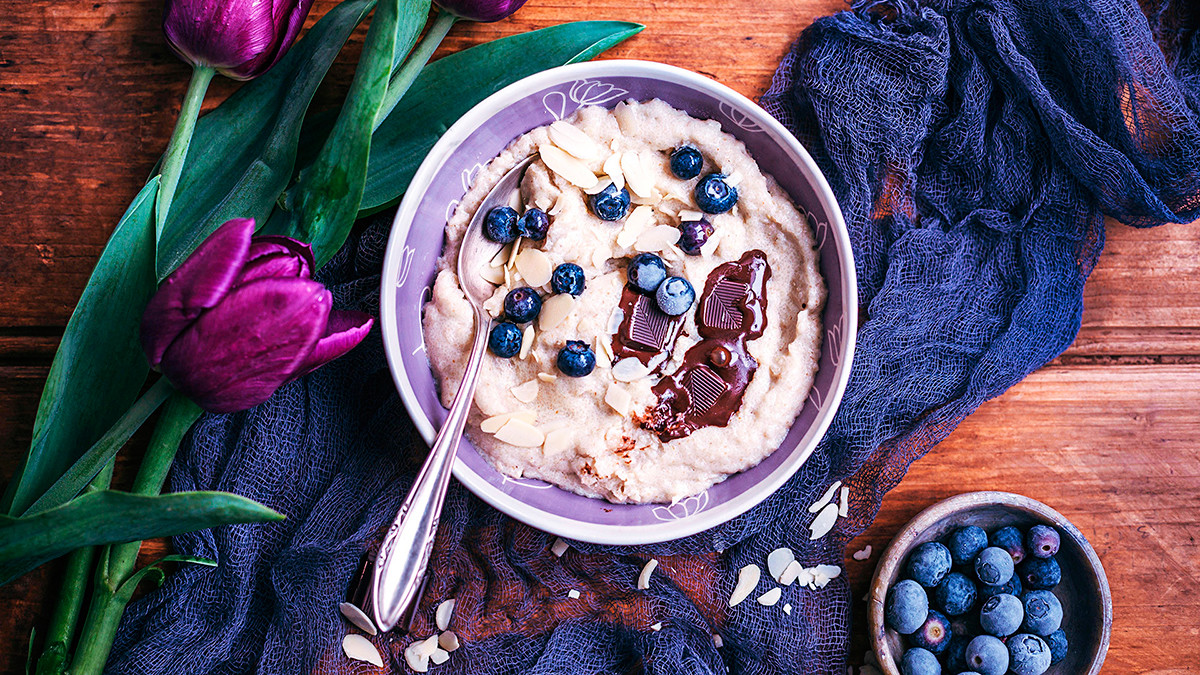
What is healthier to eat in the morning: protein, fat or carbs? Russian grandmothers know that there is nothing better than thick porridge with butter. When you need to go to work on a cold and dark winter morning, a large plate of hot porridge is a real salvation. In Soviet times, the most popular porridge was semolina: it was cheap and affordable. It was cooked in milk and served with butter and varenye (homemade jam). Other favorites include oatmeal, buckwheat, and millet (here you can find many delicious breakfast recipes).
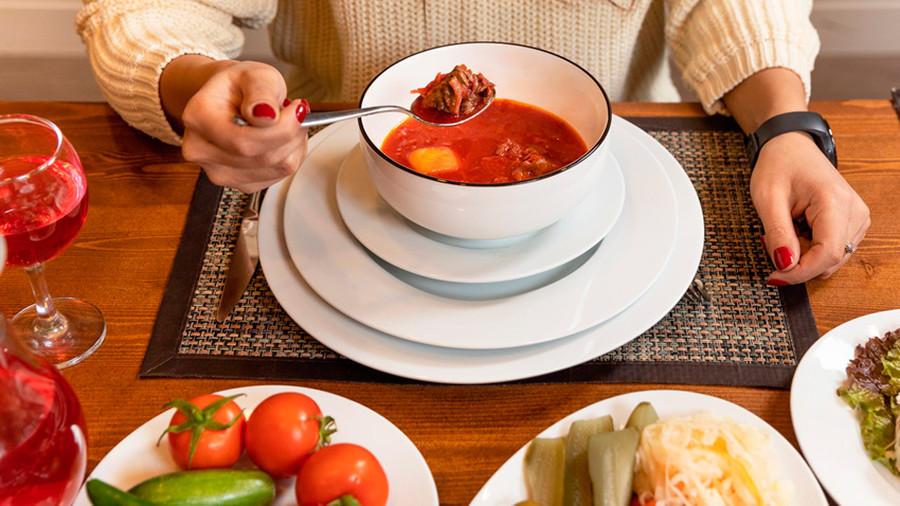
Russians have such a famous saying: “Our meal is soup and porridge”. This does not mean that Russians do not eat anything except these dishes. This is about the fact that Russian cuisine is simple and affordable. And for older generations who remember the times of shortage, these dishes also helped to feed the family, so many Russians today can not imagine their lunch without soup. In winter, it will usually be a thick, rich meat broth-based soup with potatoes, cereals and/or meat and which is usually served with a dollop of sour cream: for example: borsch, shchi, solyanka or rassolnik. In summer, there’ll be “light” versions of the same: cold svekolnik and okroshka or vegetable sorrel soup with egg. Russian soups even can be a main course, not just a starter.
One of the most surprising Russian food habits for foreigners is to eat everything with bread: soup, meat, pasta, potatoes. This originates from the time of deficit. When there was not enough food for a large family, lunch became much more filling with bread. And there was always enough bread. In the villages, people could bake bread themselves,in the cities there were bread factories everywhere, which brought fresh, still hot bread to the stores every morning. If parents asked their kids to go to the store, they often brought a loaf without the top crust - it was so crunchy and flavorful that it was eaten on the way home. In Russia and former Soviet countries, it is still very popular to eat bread made from rye flour, which is considered more healthy.
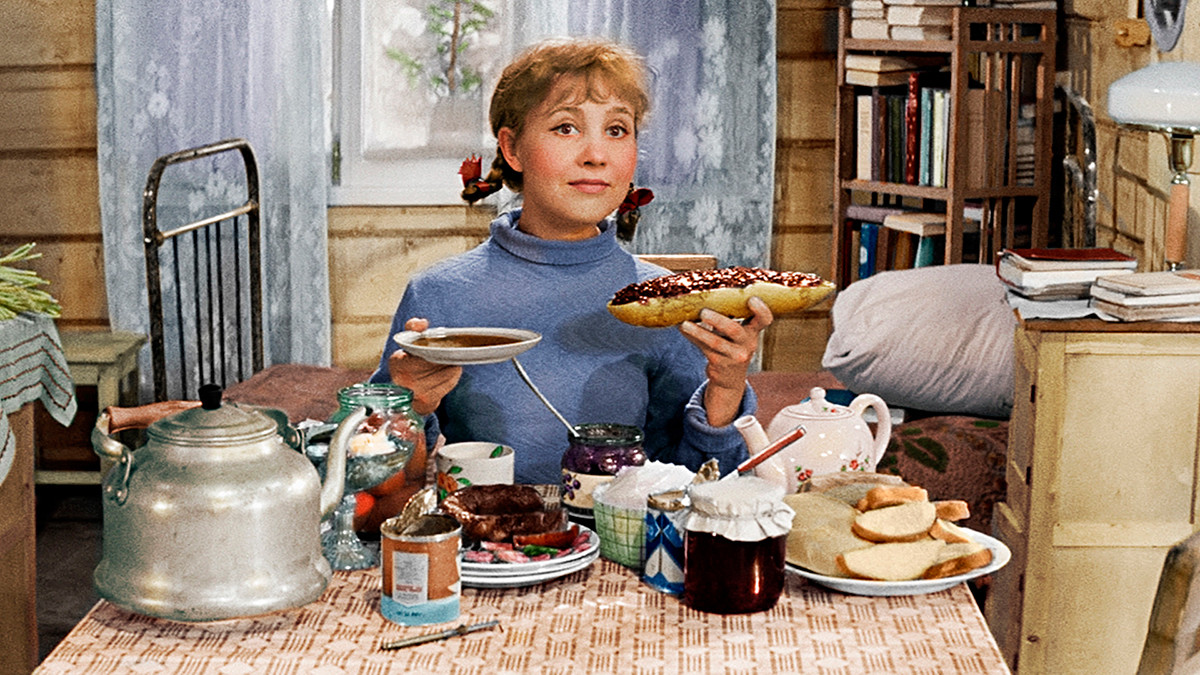
However, it was not customary to eat bread just like that, outside of lunch or dinner. How many times Russian babushkas said: “Buns are not food!” By buns, of course, they meant any baked things, from pies to sandwiches, which could not be a substitute for a lunch: do not satiate for a long time and soon you will want to eat again. Also, Russian grandmas have a belief that eating “dry” (i.e. without liquids) is bad for the stomach. The next Russian eating tradition follows this up.
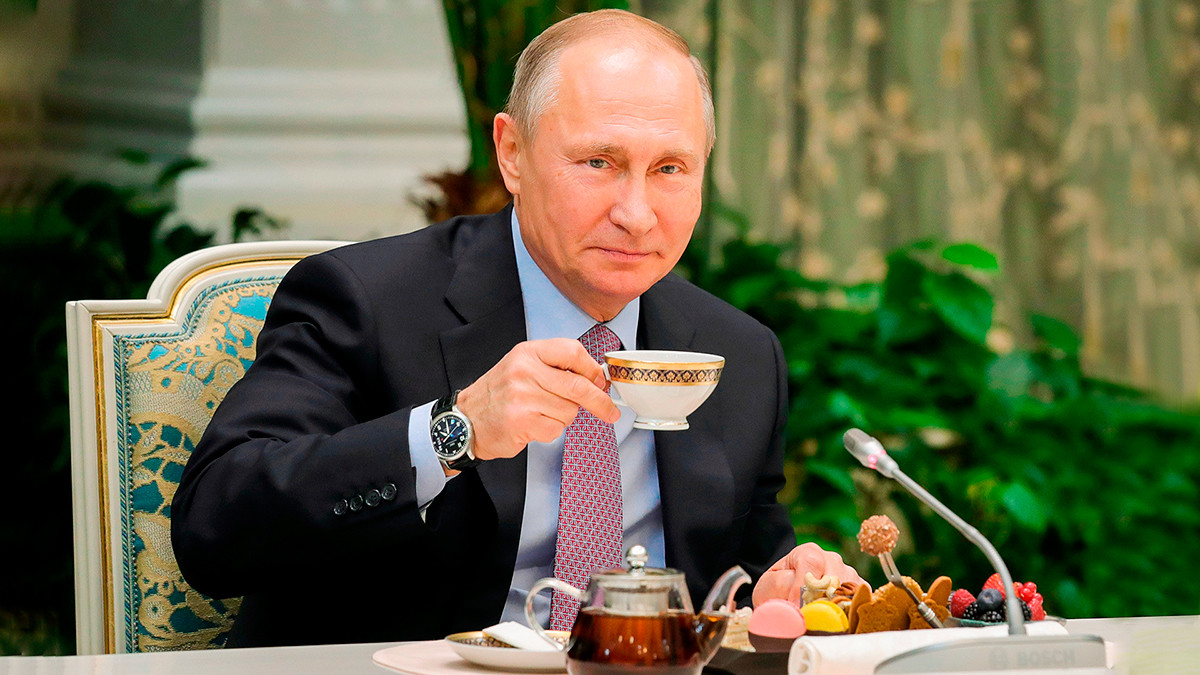
Many nutritionists today say that you should not drink after a meal, but Russians have always considered it good to have a cup of tea at the end of lunch. They believe that tea improves digestion. Of course, one cup of tea is never enough. And the drink should be accompanied by pastries or sweets, naturally!
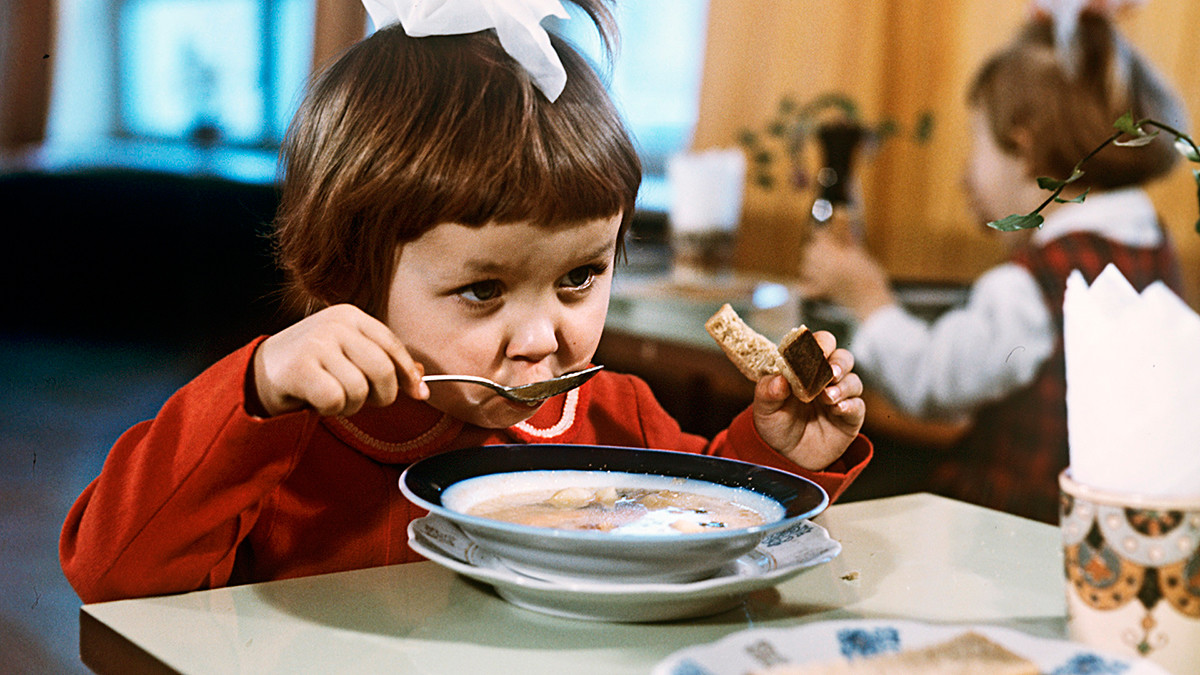
“When I eat, I am deaf and dumb!” Posters with such slogans can still be found in many Russian kindergarten and factory canteens. You should eat in silence, carefully chewing food properly. However, talking during a cup of tea is welcomed.
If using any of Russia Beyond's content, partly or in full, always provide an active hyperlink to the original material.
Subscribe
to our newsletter!
Get the week's best stories straight to your inbox